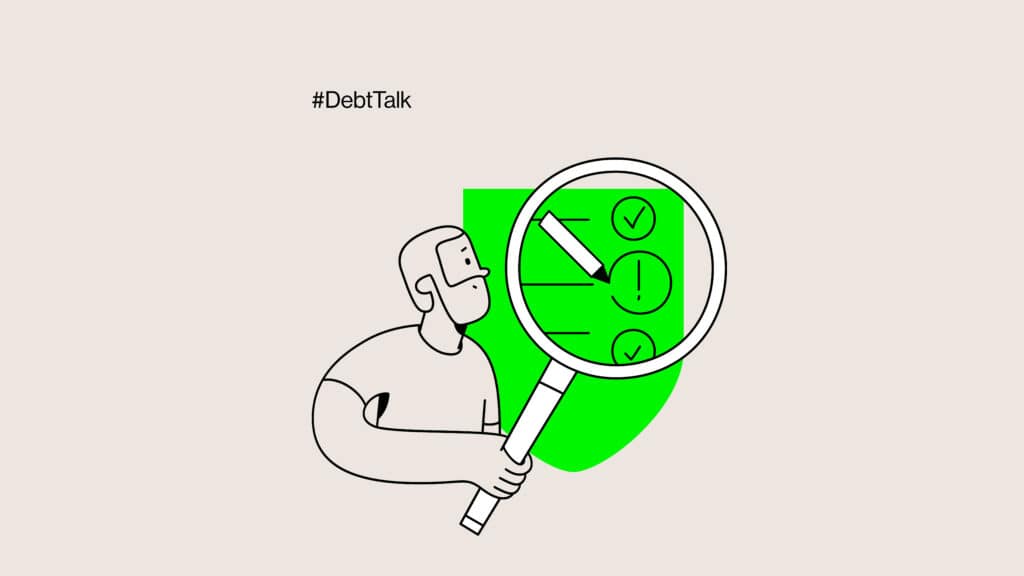Bad debt, or difficult debt as we like to think of it, is one of the realities of doing business. But, if managed well, bad debt can be an opportunity to recover money owed, enhance company reputations and ensure that those defaulting customers are rehabilitated and returned to the economic cycle.
Most importantly, those customers responsible for bad debt should be treated empathetically with an approach that you can consider as just another way to deliver good customer service.
This guide delves into the concept of bad debt, explores its negative implications and then provides effective strategies designed to help companies make a positive difference to their bad debt book.
Defining bad debt
Bad debt refers to accounts receivables that are overdue and considered uncollectible. These accounts may be being worked internally or even sitting with a third party debt collection agency.
In our experience, the majority of difficult debts arise because of unavoidable everyday events like job losses, relationship break-ups, injuries, and more recently, the cost-of-living crisis. The reasons people are unable or unwilling to pay are often complex and a product of many factors beyond the control of defaulting customers.
Debt can be a force for good and a significant enabler, however it can also ‘go bad’ and negatively affect your customers as well as your business.
Fundamentally, bad debt is a deeply human problem.
How do overdue accounts become bad debt?
Overdue accounts become difficult debt when some or all of the following occur:
- The customer stops responding to communication about the debt;
- The debt has been assessed and determined as being unrecoverable;
- The debt could start impacting the customer, which we will expand on further in this blog.
Impact on customers
Difficult debt can impact customers in ways that were never intended:
- Emotional, mental and often physical effects;
- A negative drag on a customer’s prospects for employment, accommodation, or other credit via credit scores;
- Leaving a lasting negative perception about the businesses that attempted to collect the difficult debt. Unfortunately it’s a challenge to definitively understand when the debt becomes ‘difficult’, however our experience suggests if payments haven’t been made for over 60 days or more, despite attempted contacts, then the traits of difficult debt start to appear.
Why bad debt makes things harder if not managed properly
The impact of unresolved bad debt can be far-reaching and, potentially, very detrimental.
Not just to your business, but to a person’s credit worthiness and our economy too.
Financial losses
Unrecovered debt directly affects the bottom line by reducing profitability which can, in turn, create cash flow issues. Difficult debt can also run up extra expenses as your company redirects time and resources for credit management at the cost of your core business, pays for external debt collectors and / or incurs (expensive) legal costs.
Loss of reputation
Some bad debt recovery processes can tarnish a company’s reputation and ruin future relationships with customers, especially if a company engages in aggressive collections practices. And, if that customer then experiences difficulties in obtaining credit from another company, the customer’s trust and loyalty that was built over time, is out the window. Any negative customer outcomes that become public can also impact a company’s social standing in the community.
Customer losses
Simply writing off bad debt is bad for business. It reduces net income and also means the customer is almost certainly lost to ever buying goods or services from your company again.
Regulatory
If processes and policies are not carefully pursued and audited then poor customer outcomes could result in legal consequences for the business and senior managers.
The better way to manage bad debt
Bad debt doesn’t have to be all bad news. There are tried and trusted strategies you can use to manage bad debt in a way that is positive for both you and your customers.
Here are some of the most effective strategies:
Responsible lending practices
Put processes in place to confirm that customers are in a position to afford the credit you’re extending. Setting appropriate credit limits and payment terms based on the customer’s affordability, financial stability, creditworthiness and industry norms all help to reduce bad debt arising down the track.
Update credit policies
Ensure your credit policies comply with the regulations appropriate to your industry by reviewing them and updating them. Clear and well-defined credit policies that outline the criteria for extending credit can significantly minimise risks of bad debt.
Prompt invoicing and follow-up.
Timely invoicing is crucial to avoid payment delays. Implement a systematic invoicing process and follow up on overdue payments without delay. Consistent communication can help resolve issues and encourage settlements. Sometimes, a friendly reminder can resolve the issue and stop it from escalating.
Continuous analysis / monitoring of accounts receivable
Regularly monitor and analyse accounts receivable to identify potential bad debt risks and then take proactive measures. By utilising financial analytics and reporting tools to assess payment patterns, ageing accounts and credit trends, you can often take proactive action to prevent the debt becoming difficult.
Provide flexible payment options
When customers are facing financial difficulties, explore the possibility of negotiating alternative repayment arrangements. Having flexible payment options can provide a win-win solution and preserve your customer relationship.
Engage recovery specialists
If internal efforts aren’t working, consider involving debt recovery agencies. These professionals use specialised techniques and when appropriate, legal measures to maximise recovery. We recommend you work with an agency that shares your values and appreciates how important it is to maintain good customer relationships.
Selling your bad debt instead of writing it off
When attempts to recover an outstanding balance prove futile, you can resort to writing off the debt as a loss. Or, you can recover a percentage of the debt and free up internal resources, by selling the debt.
What are the benefits of selling bad debt?
At DebtManagers, we primarily buy historic debt books from large corporates and small to medium businesses who have a sizeable number of aged accounts that they sell to us as a one-time transaction.
We then agree to buy more recent bad debt accounts, monthly or quarterly. Alternatively, some clients will sell one or two debt ledgers per year with larger balances.
For many businesses, selling bad debts to a third party comes with significant benefits as they can convert accounts with very little chance of recovery to profit.
Better customer outcomes
We specialise in purchasing bad debt and employing the industry’s most experienced team of debt management experts. We ensure your customer is treated with empathy, respect, and fairness. It’s an approach that increases the chances of successful repayments, improves customer credit ratings, and enhances your company’s reputation as having a people-centred focus.
Immediate cash payment
You receive an immediate, discounted, lump-sum payment for the outstanding debt. Companies can use the funds for cash flow, to cover operational needs or for investment opportunities. Our clients find selling their bad debt especially beneficial when the debt is either about to be, or has already been, written off.
Reduce recovery costs
Transferring the management of your bad debt to another company removes the need to reallocate internal resources toward debt recovery efforts, saving you time and money.
Focus on core business
It frees up your team and enables them to better concentrate on your primary, revenue-generating functions and focus on achieving strategic objectives. It’s tough to grow your business when you’re spending most of your energy chasing existing customers that haven’t paid.
Risk transfer
By selling bad debt, rather than entering into a ‘collecting on behalf of’ arrangement (which is standard for debt collection agencies), you transfer the risk of non-payment to the experts who buy your bad debt. Which means no more sleepless nights worrying about whether the customer will ever be found.
Certainty and accuracy
Receiving an upfront amount means you’re guaranteed a portion of the outstanding debt. Regardless of how much the debt purchasing company eventually recovers, your company receives a definitive, upfront payment. This provides financial certainty that means you can plan and forecast accurately. Our clients typically lock these agreements in for 3 to 5 years which gives them certainty of cashflow.
Simplified accounting
Selling bad debt also simplifies the accounting process. Instead of managing these difficult accounts, you can remove the bad debt from your books altogether, streamlining financial reporting and reducing the complexity, not to mention the stress of it all.
Reduced administrative burden.
Debt management requires administrative and legislative compliance tasks like record-keeping, documentation, and correspondence. Selling bad debt to someone who actively manages the debt removes the need for all this admin, allowing you to focus on more value-added activities like proactively improving customer experiences rather than focusing on time-consuming compliance.
Clearing bad accounts
Selling bad debt also allows your company to close bad or delinquent accounts and remove them from your records. This provides a more accurate representation of your business’s financial health and can improve your ability to raise capital, obtain finance and more efficiently meet reporting obligations.
Better results
Dealing with bad debt is an ongoing challenge for companies, but if well-managed, it’s a process that can make a positive difference, to you and your customers.
Debt can be and is most often a force for good.
But inevitably, a small number will become bad or difficult debt.
If poorly managed, this debt can have very detrimental impacts on your business and most importantly, your customer.
Debt sale is an integral part of helping solve bad debt.
At DebtManagers, we’ll acquire your bad debt, giving your business a one off cash payment and crucially, better manage customer and brand outcomes.



